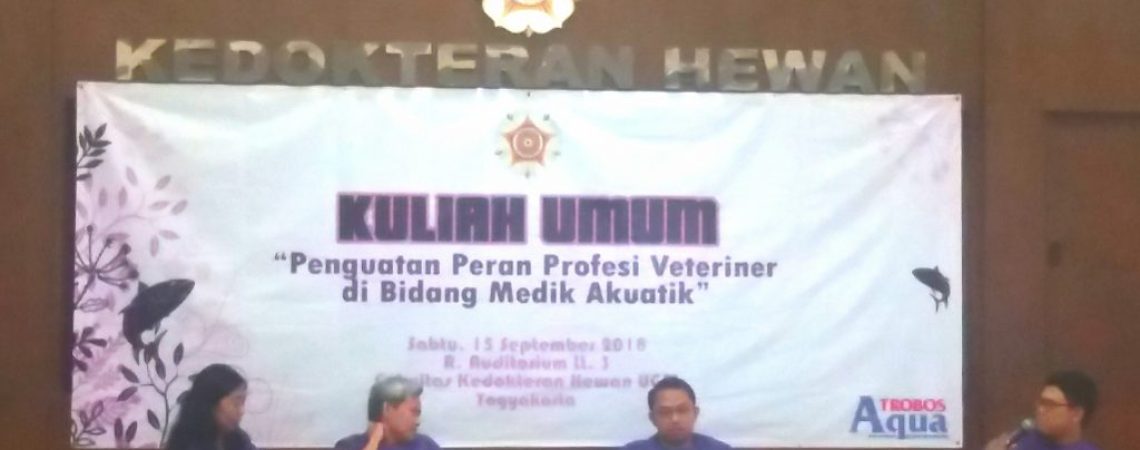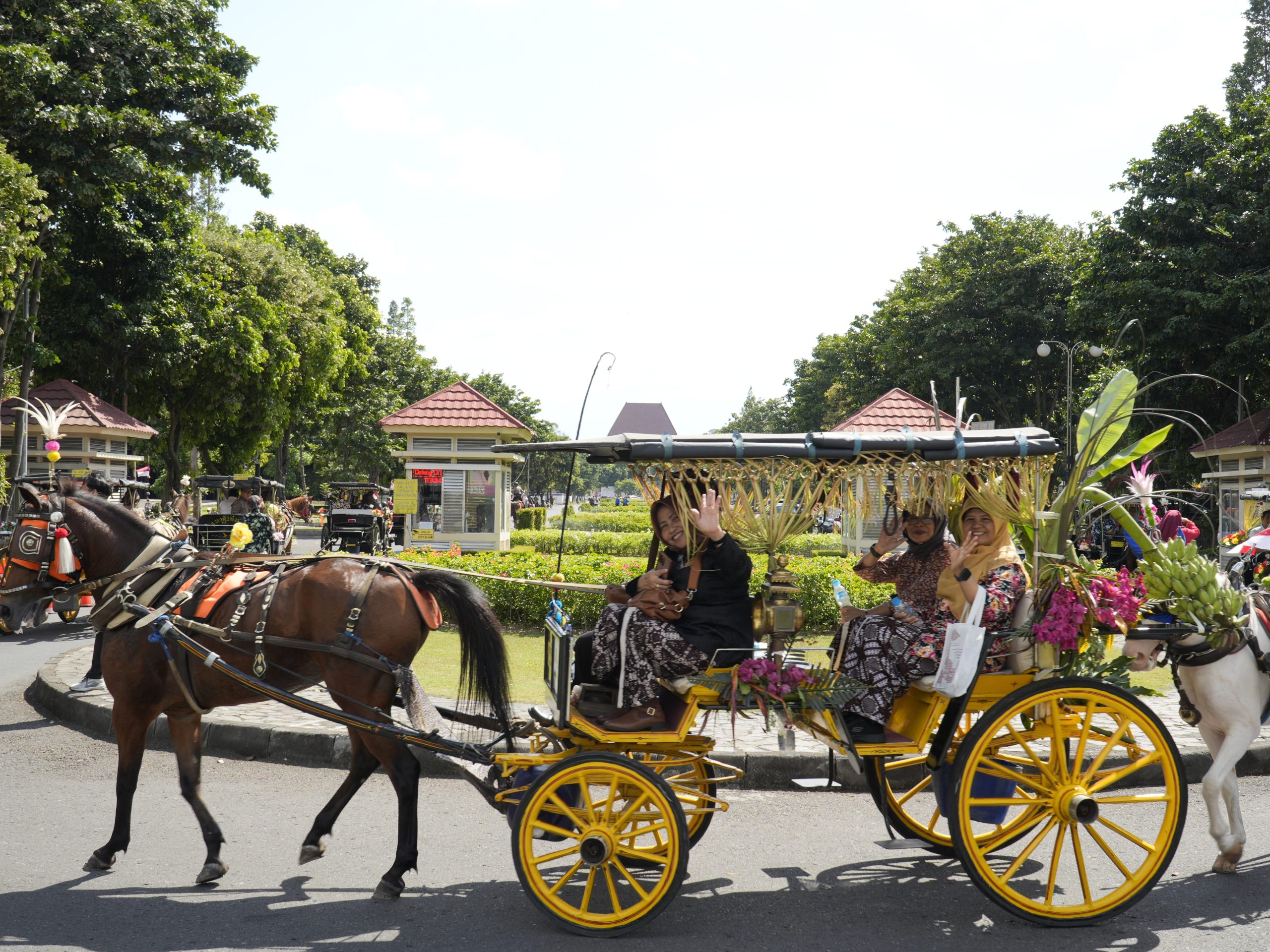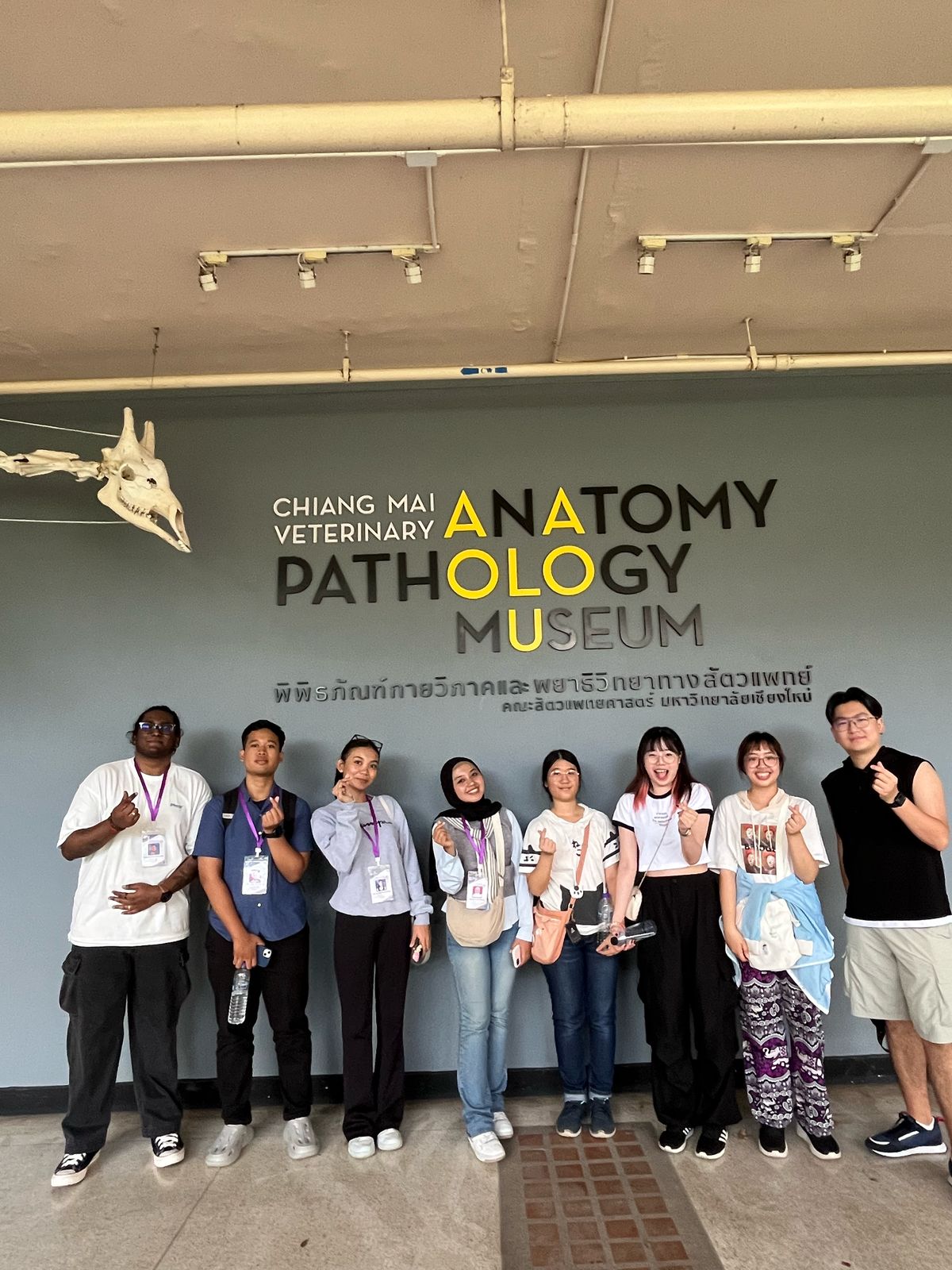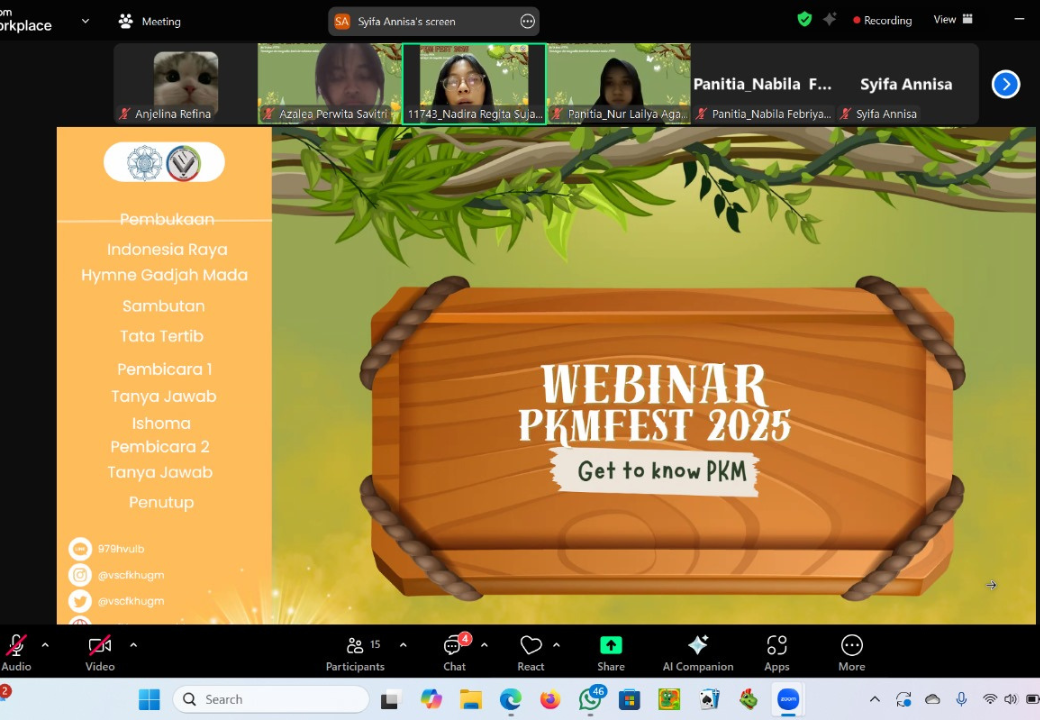Yogyakarta, September 15, 2018 – Faculty of Veterinary Medicine (FKH) UGM and Gamavet 1993 held a Public Lecture entitled “Strengthening the Role of Veterinary Professions in the Field of Medic Aquatic”. This lecture was held in order to celebrate the 72nd FKH Anniversary and 1993 Gamavet reunion.
“In addition to welcoming FKH Anniversary and meeting Gamavet 1993, this event was held to facilitate students, academics and veterinarians to sharpen their competence in aquatic field “said by drh. Pramu, M.Sc. as chairman of the public lecture committee.
This public lecture presents drh. Toha Tusihadi from Batam Fisheries and Aquaculture Center (BPPL), drh. Lusi Rachmawati from Taman Impian Jaya Ancol, Jakarta and drh. Erry Setyawan Mma., PCAH, MAHM from the FAO Emergency Center for Transboundary Animal Diseases (ECTAD) as the speaker who reviewed the role of veterinarians in the aquatic field.
drh. Toha explained that Indonesia’s position as an archipelago had great potential for marine aquaculture. Marine cultivation will develop if accompanied by the optimization of the role of the veterinarian in it. The role of veterinarians in the field of medic aquatic includes the handling of diseases and ensuring the safety of products, consumers and the environment.
“In addition to handling diseases and ensuring product safety, veterinarians also play a role in animal breeding, specifically about reproductive technology in the aquatic field,” said drh. Toha in his presentation.
Reproductive techniques in aquatic animal breeding also support the conservation of aquatic animals. “The strategic role of veterinarians in aquatic medical aspect is very large, having a great skill of reproductive techniques in animal breeding is not only limited to fish, but also in aquatic mammals and it will support conservation programs. “Added by drh. Lusi.
The safety of the products, consumen, and the environment are closely related to global issues regarding antimicrobial resistance (AMR). Disease problems in aquaculture are strongly related to the use of antibiotics. Shrimp export commodities from Indonesia was decreased because it was rejected in several countries as a result of contamination of the antibiotic residues. The use of antibiotics that are not in accordance with the rules of use can lead to antibiotic resistance, but it can also affect the product and the environment. In this case, veterinarians play a role in regulating the policies on distribution, and the use of Antibiotics in aquatic world.
“Veterinarians are very necessary in terms of monitoring and surveillance of AMR for aquatic bacteria,” said drh. Erry from FAO ECTAD.
Overused of antibiotics causes contamination of antibiotic residues, not only in fishery products, but also in the environment.
“Maintaing fish means maintaining the water, so the rule of the antibiotic use and the management of the aquatic waste also need to be considered” added drh. Lusi.
This public lecture is expected to benefit all of the participants. However, the role of veterinarians in aquatic world still needs to be strengthened with various understandings or additional material such as biochemistry, water microbiology and also supported by the policy makers so that the potential of Indonesia’s aquatic world is become better (IP)





